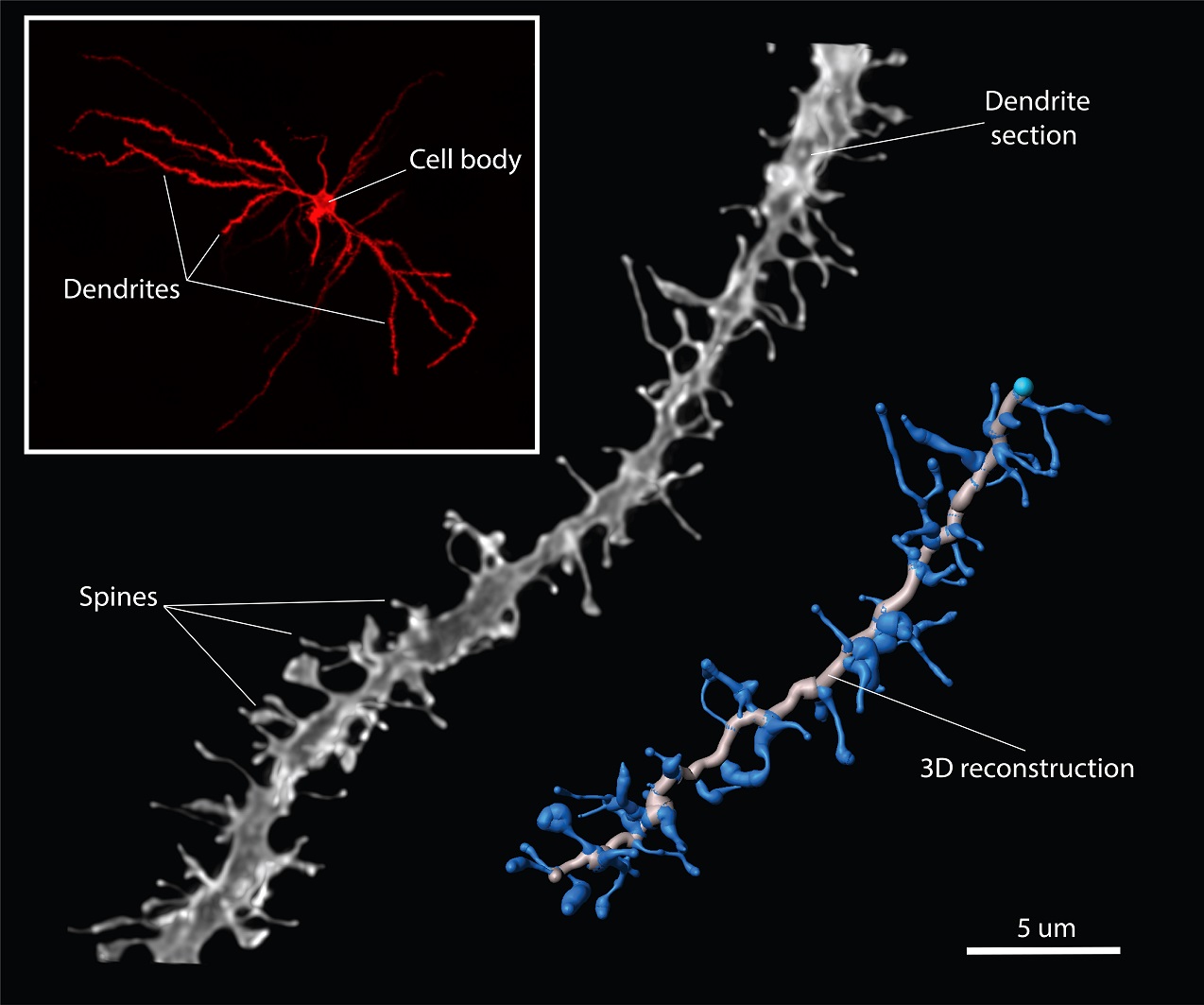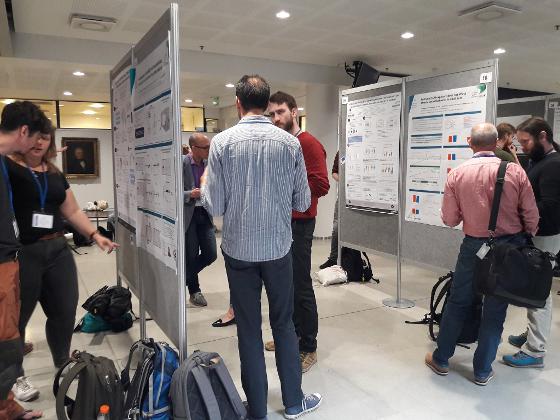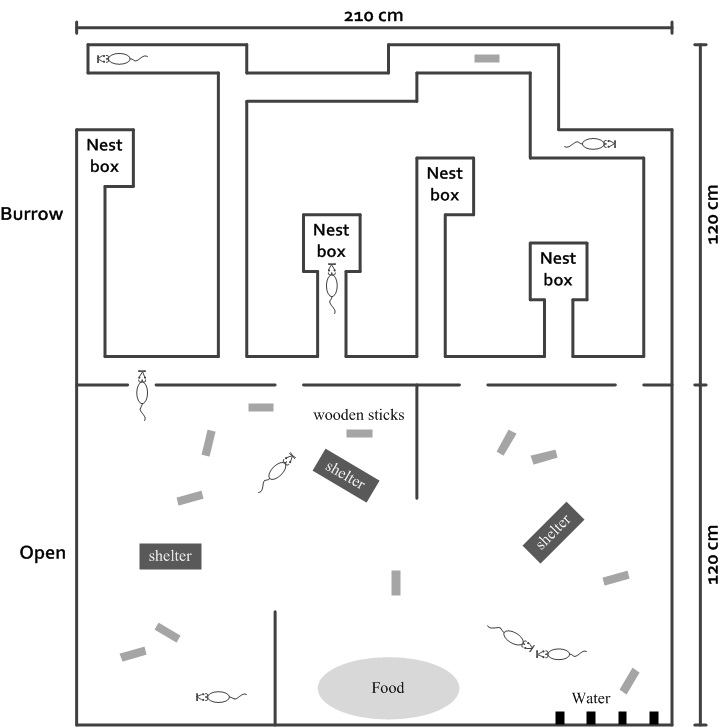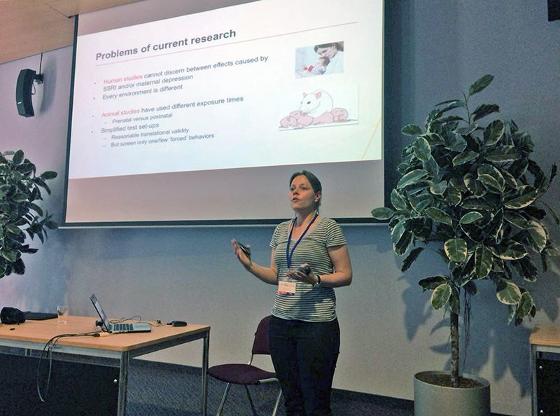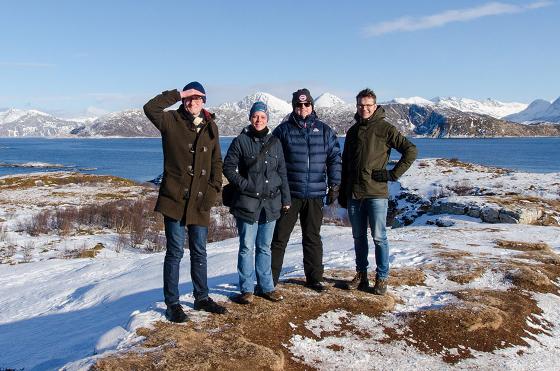We are looking for enthusiastic post-docs who want to join the The Arctic MSCA-PF program and write a MSCA-PF application with us.
News archive
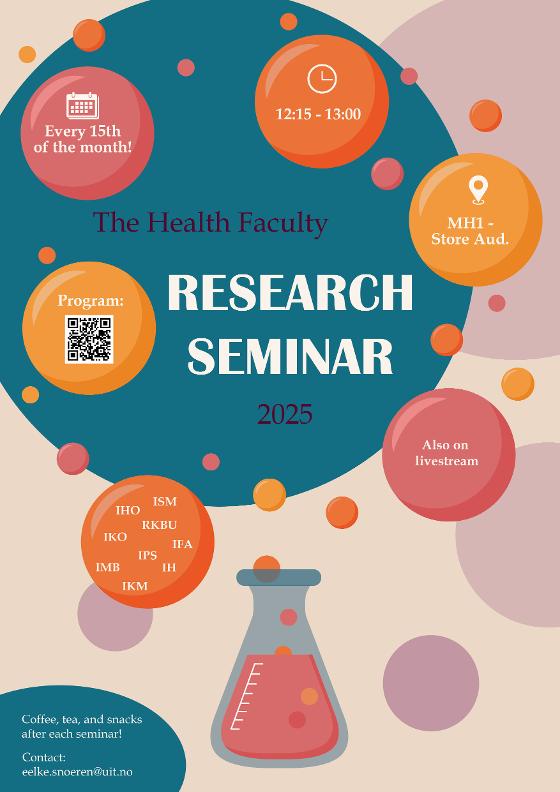
06.01.2025:
The Health Faculty Research Seminar 2025
Around the 15th of the month (kl. 12:15-13:00), a different keynote speakers (from different institutes) will present their research, followed by a network event with some free coffee, tea and snacks!

15.08.2024:
IBNS 34th Annual Meeting will be in Tromsø!
The annual meeting of the International Behavioral Neuroscience Society (IBNS) is coming to Tromsø June 24-29 2025!
01.03.2024:
New paper: The neural mechanisms underlying natural reward seeking behaviors
In a recent study, published in Psychopharmacology, we aimed to investigate the underlying neurobiological mechanisms that regulate different natural reward seeking behaviors: sexual behavior and sucrose self-administration. Different types of stimuli can have attractive and motivational values that induce approach and consummatory behavior. Food, social interactions, and sexual partners are examples of ‘natural rewards’, because they induce behavior that is needed to survive, or to ensure survival of the species. At the same time, they are examples of ‘intrinsic rewards’, rewards that have an unconditioned, inherently pleasurable value.
19.02.2024:
Symposium 'Food for thought'
We are organizing the symposium 'Food for Thought' on the 14th of March 2024!
Come join us to see international and local speakers present their latest food-related research.
15.02.2024:
New paper: Junk food consumption alters the way our brain regions respond to food rewards
Excessive consumption of foods rich in sugar and fat, often referred to as “junk” or “fast” foods, plays a central role in the development of obesity. The highly palatable characteristics of these foods activate hedonic and motivational mechanisms to promote food-seeking behavior and overeating, which is largely regulated by the brain reward system. This study, published in Physiology & Behavior, investigated whether consumption junk food for several weeks can change the responses in the brain reward system to food rewards.

10.01.2024:
The Health Faculty Research Seminar
Every 15th of the month (kl. 12:15-13:00), a different keynote speaker (from different institutes) will present their research, followed by some free coffee, tea and snacks!
(location: MH1 Store Auditorium)

10.08.2023:
Research Prize 2023
We are proud to share that our research group has been awarded with the annual Research Prize of the Faculty of Health Sciences at UiT The Arctic University of Norway.
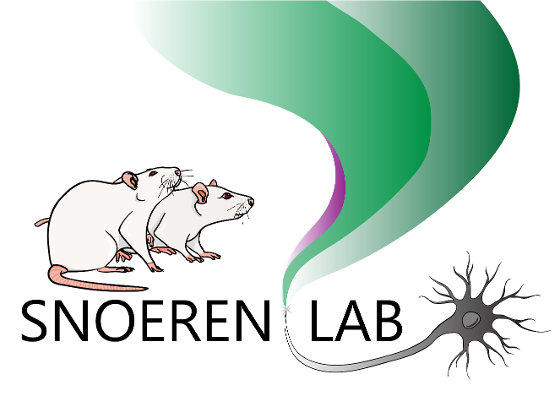
31.03.2023:
What about applying for a MSCA-PF with us?
Are you a passionate researcher at the interface of Machine Learning, Data Science and Neuroscience, whose goal is to advance our understanding of the principles of sociosexual behavior in biological networks?
-> What about applying for a MSCA-PF with us?
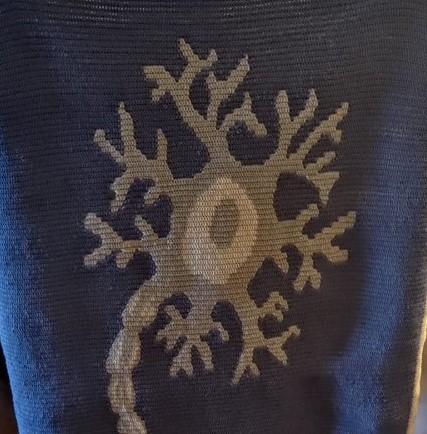
08.05.2022:
Neuron crochet blanket
A few months ago, Eelke was challenged to crochet a blanket with the image of a neuron. That challenge had to be accomplished, of course! Now, four months later, the blanket is really here!
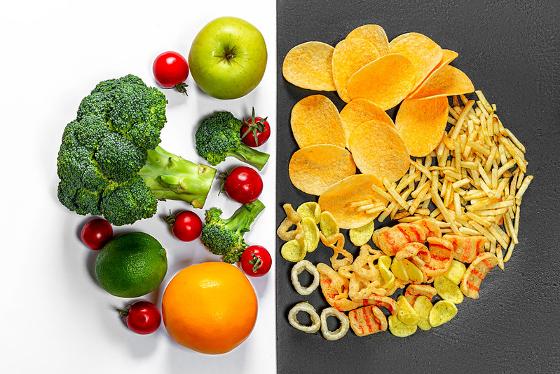
30.03.2022:
Participate in a project about the effects of food on the brain reward system!
Are you curious about the effects of food on the brain? Are you interested in psychology and neuroscience? Do you want to know how a biomedical experiment works? If you have answered “yes” to one of these questions, you might like to participate in a study about the effects of food on the brain, being conducting at the Department of Psychology at the Faculty of Health Sciences at UiT The Arctic University of Norway.
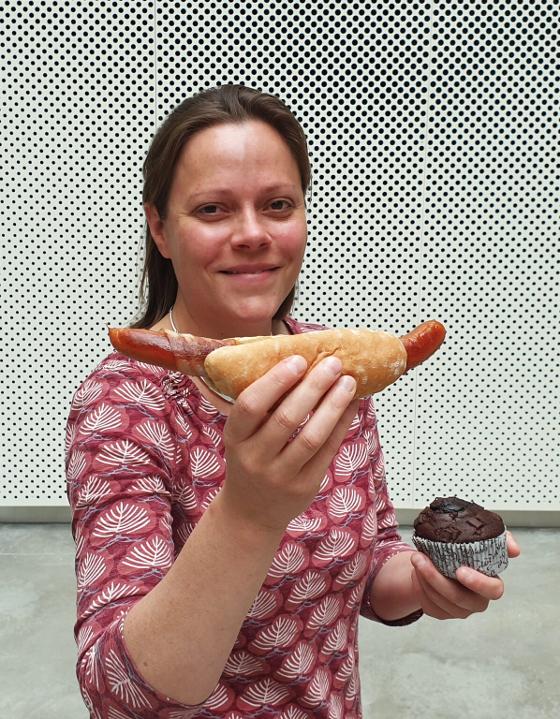
18.03.2022:
Forskerne kommer!
Eelke Snoeren is participating in Forskerne kommer again! She will travel around Norther Norway to visit schools and talk about her research.

18.03.2022:
Radio interview
Eelke was interviewed by the radio program EKKO NRK P2. If you are interested in hearing more about our research project on the effects of excessive junk food consumption on the reward system, then listen to Ekko - NRK Radio (around 1:30, in Norwegian)

18.03.2022:
Interview with Eelke in Khrono
Eelke was interviewed by Khrono on the consequences of the long animal facility closure on her research activities. The article (in Norwegian) was published on Khrono on the 13th of March 2022.

24.09.2021:
Patty Huijgens earned her PhD
Tuesday September 7th marked the end of an era. After years of hard work, Patty Huijgens succesfully defended her PhD thesis entitled "Organization and orchestration of male rat sexual behavior". Professor Juan Dominguez of University of Texas and dr. Susana Lima of the Champalimaud Centre of the Unknown acted as opponents and their engaging discussions allowed then-candidate Patty to show the bredth and depth of her scientific knowledge.For parts of her thesis, Patty traveled to Utrecht in the Netherlands and Minneapolis in the US to perform experiments. Back in Tromsø, she will first stay in our group as postdoc, after which she will start her independent research line as a researcher.
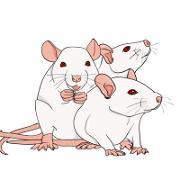
24.09.2021:
New paper: Antidepressant use during pregnancy leads to less detailed investigation strategies in novel environments in the offspring.
Antidepressant treatment is often used for pregnant women who are depressed. Although the treatment with fluoxetine is generally safe and can be necessary to lessen the effects of depression, the drug could still have damaging long-term effects on the children of these mothers. Previously, we have found that adult rats behave differently when their mothers were given fluoxetine during pregnancy and breastfeeding. Social behavior, coping with stress, but also prosocial behavior are types of behavior that appear to be changed. In the current study, we found that the children also use a different investigation strategies when exploring a novel (and thus stressful) environment. The findings are published in the journal Psychopharmacology.

16.07.2021:
New paper: the pauses during sex
In Snoerenlab, we are very passionate about studying animal behavior in great depth. In our opinion, a thorough understanding of the patterns and structures of complex behavior, such as sexual behavior, is absolutely necessary for the formation of new hypotheses about how the brain regulates the behavior. In the recent decades, many new methods have been developed to study and manipulate the activity of neurons in specific brain regions. The description and analysis of behavioral results in studies using these techniques are often oversimplified. This leads to many missed opportunities in advancing our understanding of the relation between the brain and behavior. Therefore, we decided it was time to up the game for studies of sexual behavior in male rats, focusing on the behavioral organization of the pauses during sex in our latest paper which is now published in Behavioural Processes.
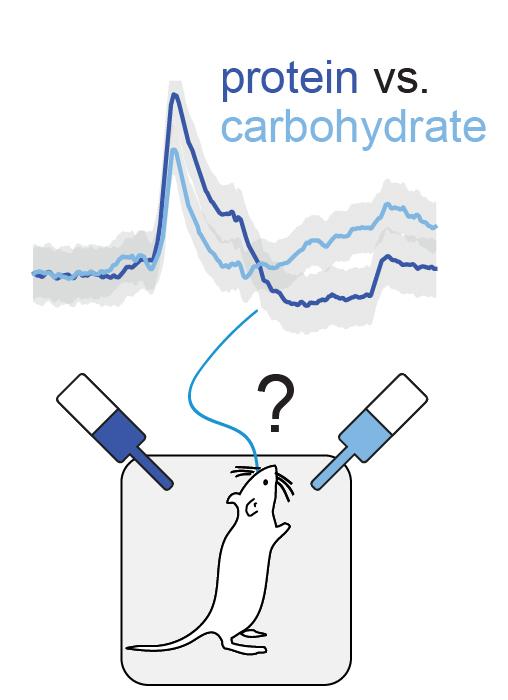
10.06.2021:
New paper: Protein appetite drives macronutrient-related differences in ventral tegmental area neural activity
Not getting enough of the macronutrient protein in our diet has severe consequences for health and ultimately can lead to death. It has even been suggested that a low level of dietary protein can cause obesity by leveraging up intake of fat and carbohydrate. However, little is known about how the brain ensures adequate protein intake. In this recent paper published open access in The Journal of Neuroscience , we showed that when rats were protein-restricted a key part of the brain's reward circuity, the VTA, was activated more strongly when rats were drinking protein than carbohydrate. Moreover, after the rats' diet was changed their behavior towards protein shifted quickly even though the VTA activity evoked by protein remained high.Thus, there might be persistent effects of protein deprivation on brain activation.

12.05.2021:
New paper: Rat ultrasonic vocalizations and novelty-induced social and non-social investigation behavior in a seminatural environment
Babies cry, dogs bark, horses neigh and birds sing. Every animal makes its own sounds which can serve different functions. Babies might cry because they are hungry and want attention from their mothers, dogs bark to communicate they want to play or to warn for intruders, and birds sing to attract a mate partner. Rats also make sounds, and some of these sounds, ultrasonic vocalizations, are sounds that we as humans cannot hear. In our latest study, published in the journal Physiology and Behavior, we investigated the role of these vocalizations in more detail: do silent rats behave differently or similarly to vocalizing rats when we put them in a seminatural environment with multiple unfamiliar rats?
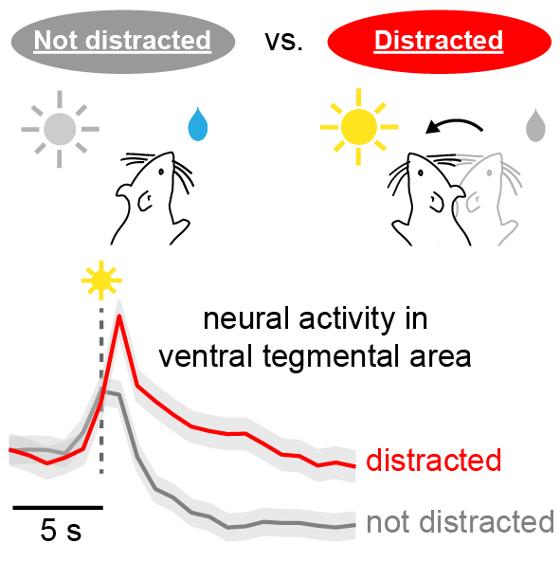
22.02.2021:
New paper: Distracting stimuli evoke neural responses in rats during ongoing saccharin consumption
Why do we sometimes get distracted by things around us and what is happening in the brain when this happens? Distractions are a way of pausing what we are doing to check whether something important is occurring in our environment. In an animal like a rat this might mean being alert to potential threats (eg predators) even while in the middle of a meal.
18.01.2021:
New paper: Cafeteria diet as model to study excessive junk food consumption
Junk food is both appetizing and consists of high-energy nutrients, which is why the consumption of junk food plays a central role in weight gain, obesity and the associated health risks. To study the effects of junk food on different on different aspects of health, researchers have to use standardized diets, very often in animal models. The Cafeteria (CAF) diet model for animal experiments consists of the same tasty but unhealthy food products that people eat (e.g. hot dogs and muffins), and considers variety, novelty and secondary food features, such as smell and texture. This model, therefore, mimics human eating patterns better than other models.
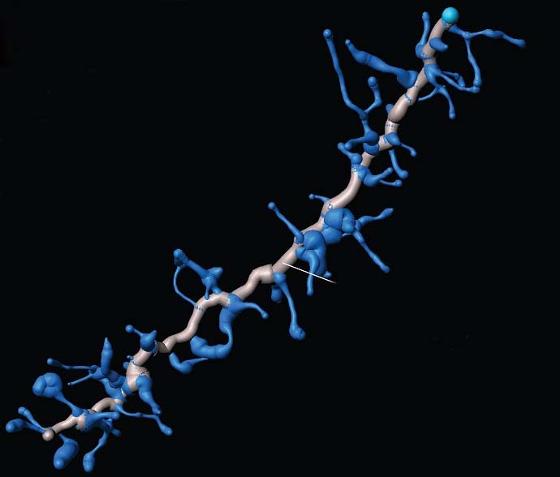
30.11.2020:
New paper: Male sex hormones change the architecture of neurons in the brain
Sex hormones, such as estrogens and testosterone, are well known to be important for the menstrual cycle, development of sex specific characteristics, and gain of muscle mass. We understand the mechanisms behind these hormonal actions. Still subject to research is how sex hormones in the brain affect sexual behavior, aggression, and even memory. In our latest research project, carried out in Minneapolis with our collaborators, we discovered that in rats, male sex hormones change the structure of neurons in certain brain areas that are involved in the regulation of sexual behavior, motivation, and reward. These findings, published in the Journal of Neuroendocrinology , shine some light on how sex hormones might ultimately influence behavior.

19.08.2020:
New paper: Too little protein changes dopamine release in the brain
Getting enough protein in our food is crucial for health and development. When we are still growing this protein is especially important. In this study, we looked at how inadequate dietary protein affects brain function both when rats were adults and during their adolescence. We used a recording technique called fast-scan cyclic voltammetry, and saw that low protein diets affected the release of dopamine, an essential neurotransmitter for motivation and learning. Interestingly, the consequence of the low protein diet differed depending on the age of the rats and had stronger effects in adolescent animals than in adults. This research, published as open access in Neuropsychopharmacology , highlights the vulnerability of the brain to dietary deficiencies during development.

27.04.2020:
New paper: Rats show prosocial behavior in a natural setting
Consolation behavior is a type of prosocial behavior that is aimed at an individual in distress. Typically, it involves physical closeness and contact, which has a calming effect on the distressed individual. In our society, it is behavior that we easily recognize, but consolation is not a purely human phenomenon: chimpanzees, dogs, elephants and prairie voles are some of the animals that console each other when the going gets tough. Based on our latest research, published in the journal Physiology and Behavior, we might be able to add rats to the list of animals that are capable of consoling each other.

13.02.2020:
EU funding for Jaume Ferrer Lalanza
We are beyond proud to announce that our postdoc Jaume Ferrer won a very prestigious, EU funded, Marie Curie individual fellowship. With this grant, Jaume will study the effects of junk food on the reward system. In other words, the mechanisms by which unhealthy food modifies our brain in relation to our motivations and rewards

22.01.2020:
James McCutcheon wins big research grant to start ambitious project
We hadn't even properly introduced the new associate professor of our research group, when Dr. James McCutcheon was awarded a Starting Grant from Tromsø Forskningstiftelse. He will now be able to build his own research team, which will work to find out how animals regulate their intake of protein.
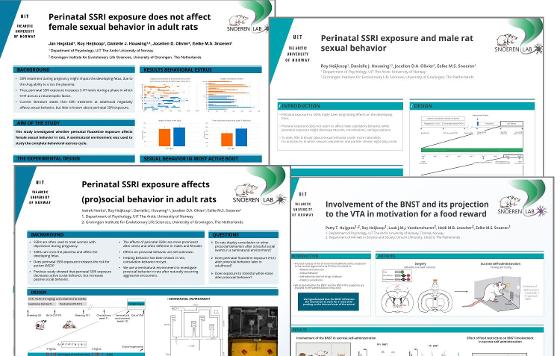
21.06.2019:
Nordic Neuroscience meeting
Helsinki formed the stage on which this year's Nordic Neuroscience meeting took place. After Trondheim in 2015 and Stockholm in 2017, this was the third time the biennial conference was organized. We were there to present our latest research.

15.04.2019:
New paper: Are the kids alright? The effects of antidepressant use during pregnancy
When pregnant women get depressed, they often get treated with the antidepressant fluoxetine. Using this antidepressant is generally safe and can be necessary to lessen the effects of depression. Still, it has been difficult to find out if this drug has damaging long-term effects on the children of these mothers. In our latest work, we have found that adult rats behave differently when their mothers were given fluoxetine during pregnancy and breastfeeding. Social behavior and coping with stress are types of behavior that appear to be changed. The findings are published in the journal Neuropharmacology.

12.03.2019:
Helse Nord finances new project
We are pleased to announce that last November, Helse Nord RHF awarded us a sizeable grant (3.25 million Norwegian krone). Starting in september 2019, this money will be used in the project: "The risk of excessive junk food consumption on the brain reward system. A translational study."
09.08.2018:
We're going international!
Being the northernmost neuroclub in the world is interesting, but every so often it can also be very advantageous to get inspired and strengthen collaborations abroad. Our department has kindly offered to support the scientific development of our group by enabling a stay at a foreign university.
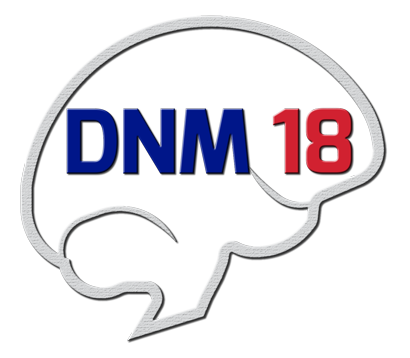
09.08.2018:
Dutch Neuroscience Meeting
Scientific conferences are a good channel to communicate your research, learn about colleagues’ findings and experiences, get helpful input and forge collaborations. Conferences also can be the perfect backdrop to get together with old colleagues and friends. This year’s Dutch Neuroscience Meeting was all of this!
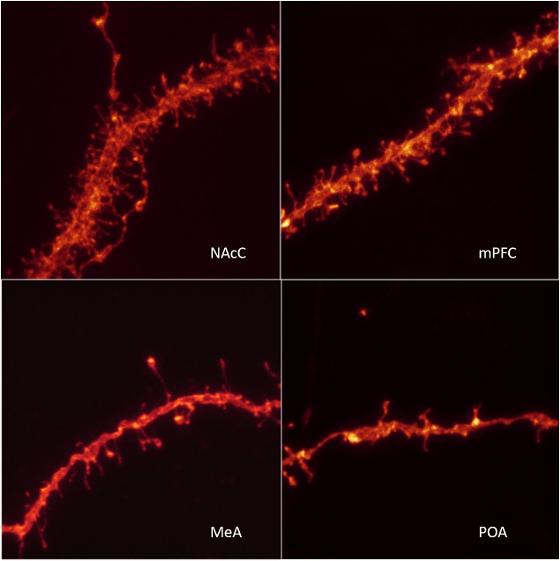
04.07.2018:
Pretty neuroscience
PhD student Patty Huijgens is currently overseas, doing research in the lab of Professor Robert Meisel at the University of Minnesota. She sent us a stunning photo she made, showing dendritic spines in different brain areas.
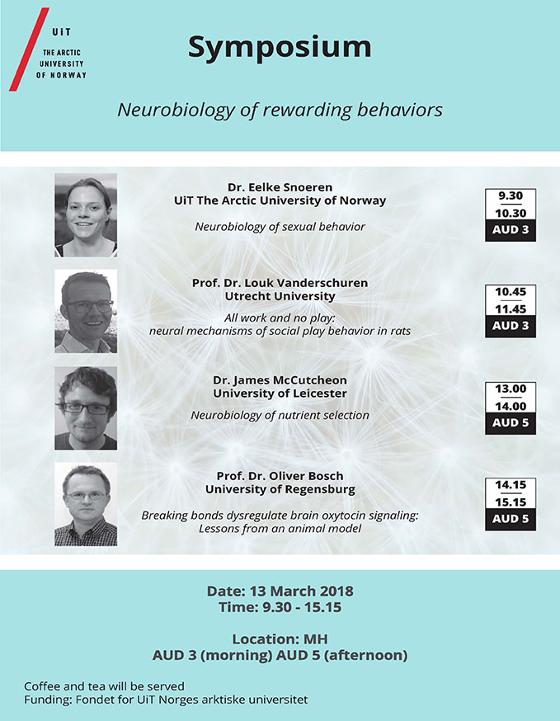
11.04.2018:
Symposium: Neurobiology of rewarding behaviors
After a day filled with four thought-provoking lectures and excellent questions from the audience, the only conclusion we were able to draw was: let's do this again!

11.04.2018:
UiT and the Norwegian Research School for Neuroscience
Last week UiT became a full partner of the Norwegian Research School of Neuroscience (NRSN). This means new opportunities for both PhD students and Faculty.
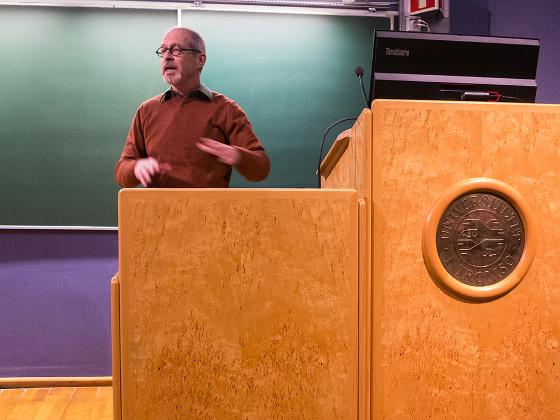
10.04.2018:
Professor Witter draws crowd with guest lecture
Menno Witter honored us with a visit and gave a guest lecture on neurobiological research to a highly interested and enthusiastic audience.
19.02.2024:
Symposium 'Food for thought'
We are organizing the symposium 'Food for Thought' on the 14th of March 2024. Come join us!
International and local speakers will present their latest food-related research.
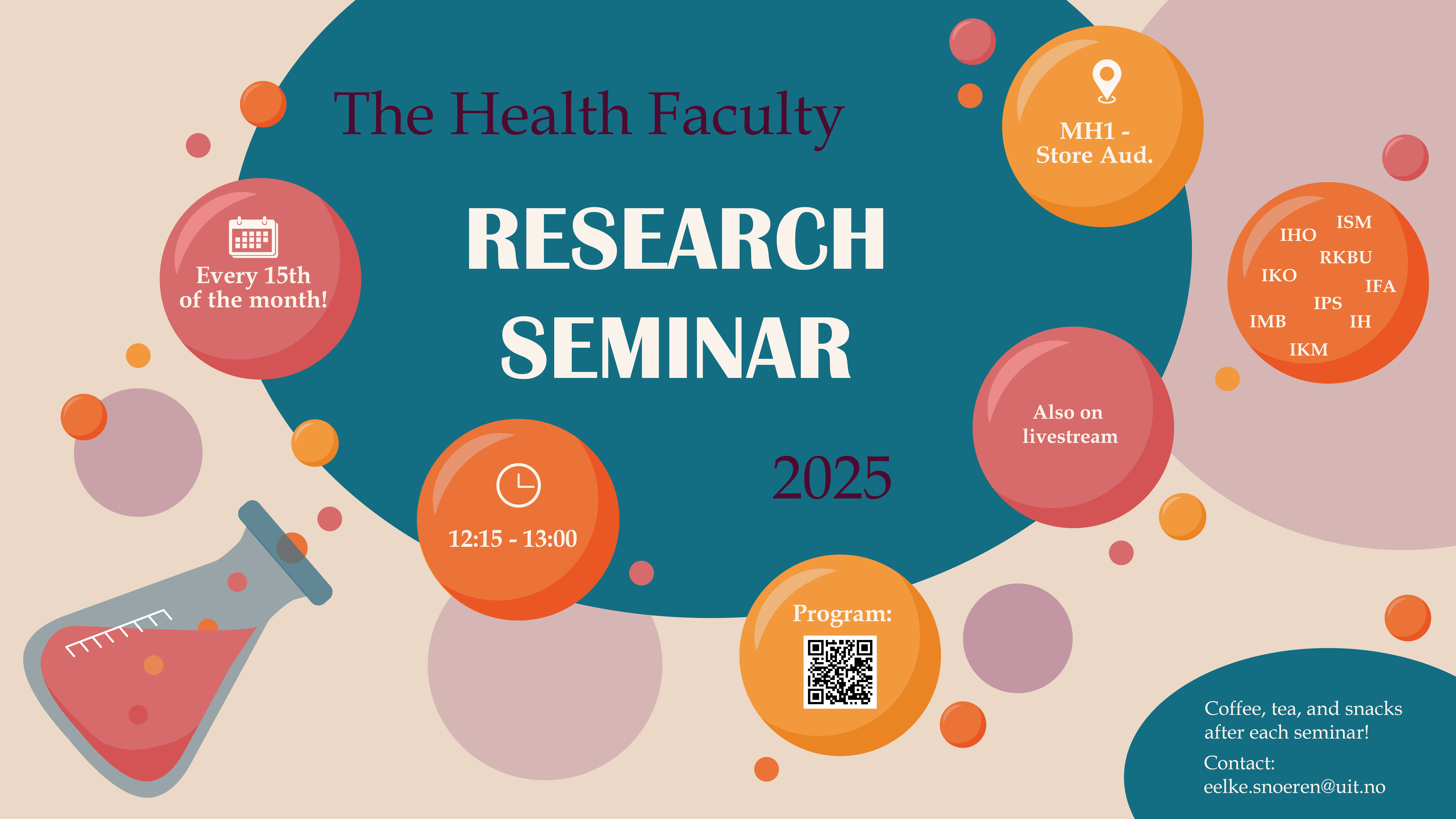

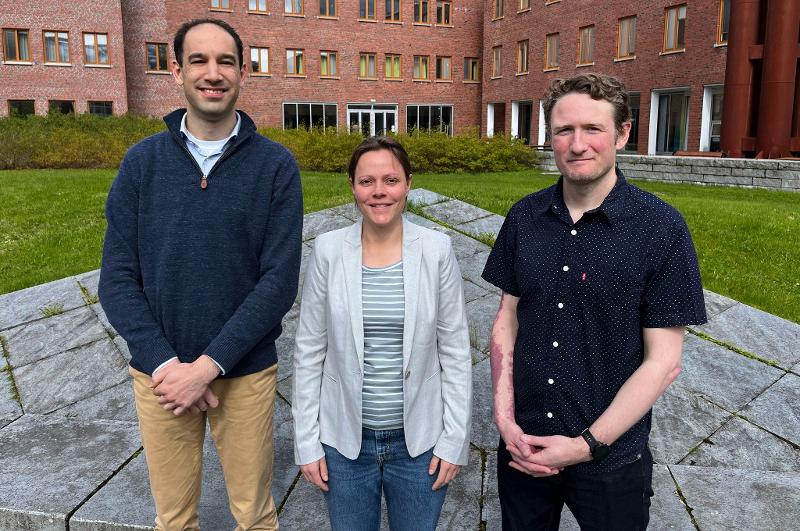
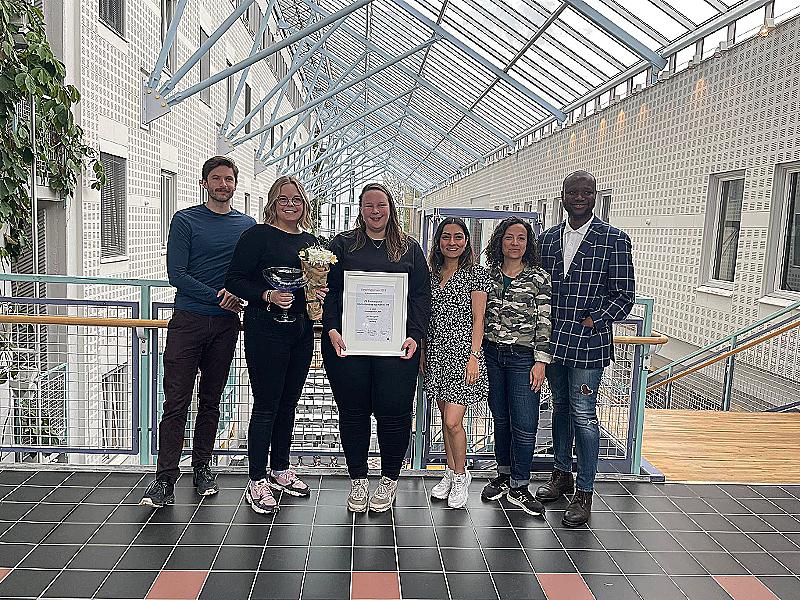

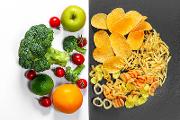 Are you curious about the effects of food on the brain? Are you interested in psychology and neuroscience? Do you want to know how a biomedical experiment works? If you have answered “yes” to one of these questions, you might like to participate in a study about the effects of food on the brain, being conducting at the Department of Psychology at the Faculty of Health Sciences at UiT The Arctic University of Norway.
Are you curious about the effects of food on the brain? Are you interested in psychology and neuroscience? Do you want to know how a biomedical experiment works? If you have answered “yes” to one of these questions, you might like to participate in a study about the effects of food on the brain, being conducting at the Department of Psychology at the Faculty of Health Sciences at UiT The Arctic University of Norway.